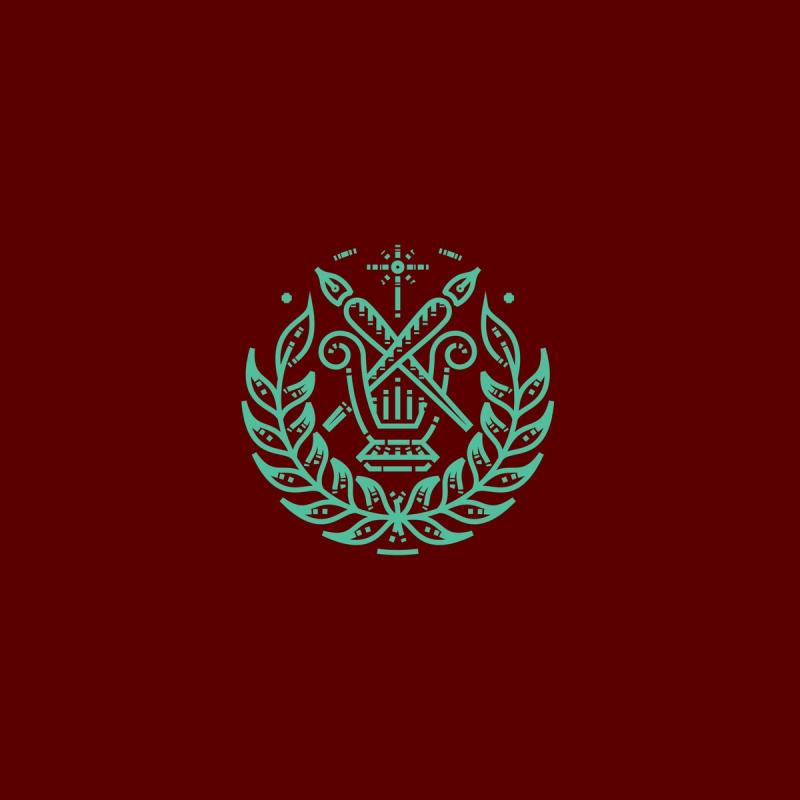“I pledge allegiance.” Three words that immediately bring to mind the American flag and that daily classroom ritual from kindergarten through twelfth grade. When my youngest sister started kindergarten, I remember her coming home the first week and asking the family at the dinner table if we all knew “the incredible agents.” We were befuddled. Was this some cartoon program they were watching in kindergarten, or some storybook they were reading? After a little probing, Mom and Dad figured out she meant the Pledge of Allegiance. Even though she had no idea what she was reciting with her classmates, in the first few days of school she learned that it was somehow important as a ritualized practice done in community.
Perhaps with the desire to tap into the power of this national ritual, there is a common practice among many conservative Christian churches and organizations to recite similar pledges of allegiance with children. There is a pledge to the Bible, known as the Bible Pledge, and a pledge to the Christian flag, which are frequently recited in conjunction with the Pledge of Allegiance to the American Flag. But what does this pledge trifecta communicate? Are there more historic alternatives? Growing up in Baptist and Evangelical settings, I remember these pledges. But recently, I have been considering them more deeply as they are also part of the routines of the growing local homeschool co-op in which my children participate. In discussing with fellow families and those in the nationwide organization’s leadership, the following points of discussion have taken shape.
Origins of the Bible Pledge
Frequently used in VBS, Sunday School, and other Christian educational settings, The Bible Pledge reads thus:
I pledge allegiance to the Bible,
God’s holy Word,
I will make it a lamp unto my feet
And a light unto my path
And will hide its words in my heart
That I might not sin against God.
The pledge finds its origins in the work of a Southern Baptist pastor named Homer Grice who introduced it in 1925 to Vacation Bible Schools. Grice was an important figure in the growth of VBS during the twentieth century starting with his local church ministry in Georgia and then more broadly in his work for the Southern Baptist Convention’s Sunday School Board where he served for twenty-nine years. Melita Thomas, who currently serves as part of Lifeway Christian Resources (the name for the SBC’s Sunday School Board since 1998), explains that “Grice promoted a plan that gave children a daily program to minister to physical, mental, moral, and spiritual needs. He incorporated a patriotic regimen with the still-familiar opening exercises of pledges to the United States flag, the Christian flag, and the Bible.”
Grice’s vision for leveraging churches’ idle Sunday School facilities during the summer months to reach children with the Gospel spread far beyond the Baptist tradition, and was adopted across the denominational spectrum. One cannot deny that such programs have been a strong evangelistic tool and a wonderful blessing for countless families and churches. But what are we to make of the “patriotic regimen with the still-familiar opening exercises”?
Considering the Bible Pledge
First, one can’t help but notice the pledge’s narrow focus on the Bible itself, with no mention of the message of Christ contained therein. To a certain degree this is understandable considering the pledge’s original context with the battle for the Bible raging between Fundamentalists and Modernists in the early 1900s. Yet pledging directly to the Bible seems reminiscent of that for which Jesus critiqued the Pharisees: “you search the Scriptures in vain thinking in them you will find eternal life. But they testify of me” (John 5:39). Our salvation does not come from the Bible itself, but from Christ himself, whom the Bible reveals. This is the approach to the Scriptures that Jesus uses on the Emmaus Road, where “beginning with Moses and all the Prophets he interpreted to them in all the Scriptures the things concerning himself” (Luke 24:27). The apostolic proclamation evident in Acts and the Epistles also takes similar form in pointing to the Christ event as the ultimate fulfilment of the Scriptures. Our allegiance is not to the Bible, but to Christ, the Creator and Redeemer of the universe who is revealed in the Scriptures and who is himself the Word of God (John 1:1).
The frequent coupling of the Bible Pledge together with pledges to the American flag and the Christian flag also introduces confusion by tying Christian identity to American identity and obscuring the universal nature of Christianity as that which transcends culture, nation, ethnicity (Gal. 3:28). Our allegiance to Christ is not akin to a loose or strong tie to our sense of being American. As members of the body of Christ that spans the globe for millennia, we have better options for communal practices of recitation.
Considering The Creeds
Instead of pledging to the Bible, my wife and I have suggested to our local homeschool co-op that we confess together the essential content of the Christian Faith using the Apostles’ Creed. Here we find more than a pledge to a book; we find the one who perfectly fulfilled his pledge to do the Father’s will. The Bible Pledge has a moralistic tinge as it puts the onus on what we try to do: I pledge allegiance to the Bible…I will make it a lamp unto my feet….I will hide its words in my heart…that I might not sin against God. However, the Apostles’ Creed is a confession of what Christ has done—for us. It is Christ who was “conceived by the Holy Spirit, born of the Virgin Mary, suffered under Pontius Pilate, was crucified, died, and was buried.” It is Christ who “rose again from the dead…ascended into heaven, and sits at the right hand of God the Father Almighty.” And it is Christ who “shall come to judge the living and the dead.” This is the message of the Christian faith: we don’t ascend through our efforts; Christ descends to reconcile humankind to himself.
Using the Apostles’ Creed also ensures that we are exposed to enduring Christian writings that have been used since the earliest days of the church, familiarizing us with the church’s language in the realm of Christology and the Trinity. Here we find the framework for faithfully understanding the triune nature of God—language that was refined in the crucible of emerging heresies and cultural conflict. In an era where ancient heresies frequently resurface among Christians, it is even more vital to familiarize ourselves with the faithful and historic ways Christians have understood the essentials. According to a 2018 survey, 59% of Christians surveyed view the Holy Spirit as an impersonal force. And even more disconcertingly, the same survey found 78% of evangelicals agreed with the statement that “Jesus was the first and greatest being created by God.” These are some of the very heresies that the early creeds counteracted. Internalizing the Apostles’ Creed is a gateway into the theological world of Nicaea, Chalcedon and so much more—where clear and precise formulations we still use today were developed.
The Apostles’ Creed also provides an actual articulation of what Christians have perennially believed regarding the faith once delivered: creation, incarnation, crucifixion, resurrection, ascension, and the resurrection of the body. It recounts the story of our salvation and anchors our faith in the working of the triune God in the world from creation to consummation in a way that is not time-bound, nor denomination-bound. This is ecumenicity and catholicity in the best sense of the terms; anchored in the orthodox and faithful Christian confession that is unchanging and rooted in Scripture’s testimony of real history. Learning this content by heart also provides a clear summary of the faith and makes for a simple evangelistic tool to respond to questions from neighbors, family, and friends. Reciting the Creed together as a community further connects us to the universal church, both militant and triumphant. Here we find a great gift that awakens us to the reality that we are part of the world’s redemption which will one day culminate in, as the Creed states, “the resurrection of the body and the life everlasting.”
True Allegiances
Perhaps some of the points outlined here can help you incorporate the historic Christian creeds into your personal and family devotions, or in your corporate gatherings for Christian education or Christian Worship. Finally, I pose the question, to whom do we as Christians pledge our allegiance? To the text of the Bible, or to Jesus, the King who speaks through the Bible? Our allegiance is with the King, Jesus Christ, who is the unifying message of Holy Scripture. To pledge to the Bible instead of our actual king is confusing. How much better to put Christ and the complete work of salvation before our eyes and ears frequently in our daily lives and when we are in community confessing the faith together. We all pray that we ourselves and those in our care will continue in the faith until life everlasting. One way to fortify that hope is to confess together the same words that have sustained the elderly as they breathed their last, the young as they died before their time, the martyrs in their final moments of torture, and all of the church triumphant who now bow at the feet of King Jesus, awaiting the last day when he will “come to judge the living and the dead.” If we as Christians desire to mine the riches of communal recitation and ritual, look no further than the church’s credal heritage which magnifies Christ and his great work for us.
Joshua Pauling taught high school history for thirteen years and is now a classical educator and furniture-maker. He is head elder at All Saints Lutheran Church (LCMS) in Charlotte, North Carolina and studied at Messiah College, Reformed Theological Seminary, and Winthrop University. In addition to Modern Reformation, Josh has written for Areo, FORMA, Front Porch Republic, Mere Orthodoxy, Public Discourse, Quillette, Salvo, The Imaginative Conservative, Touchstone, and is a frequent guest on Issues, Etc. Radio Show/Podcast.



